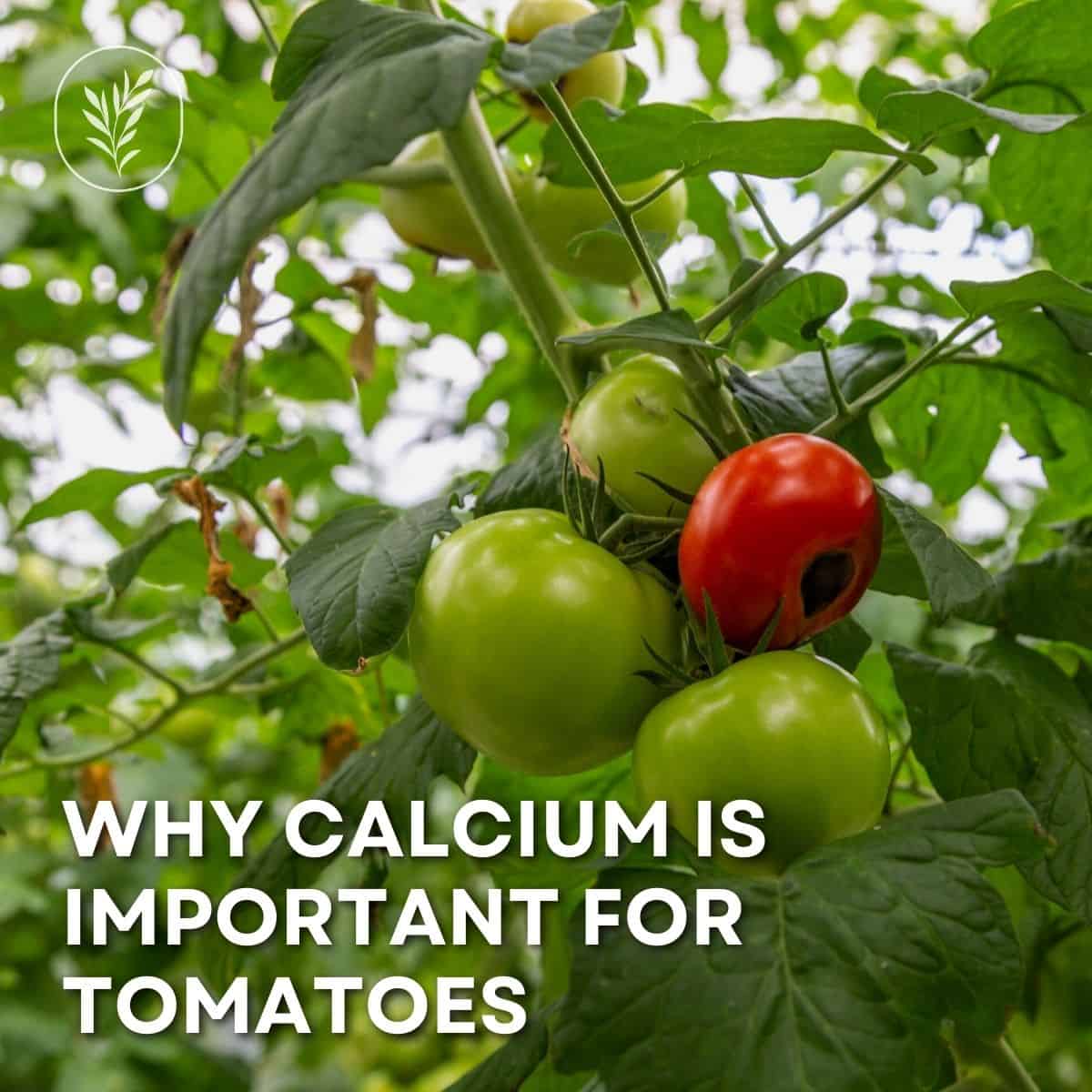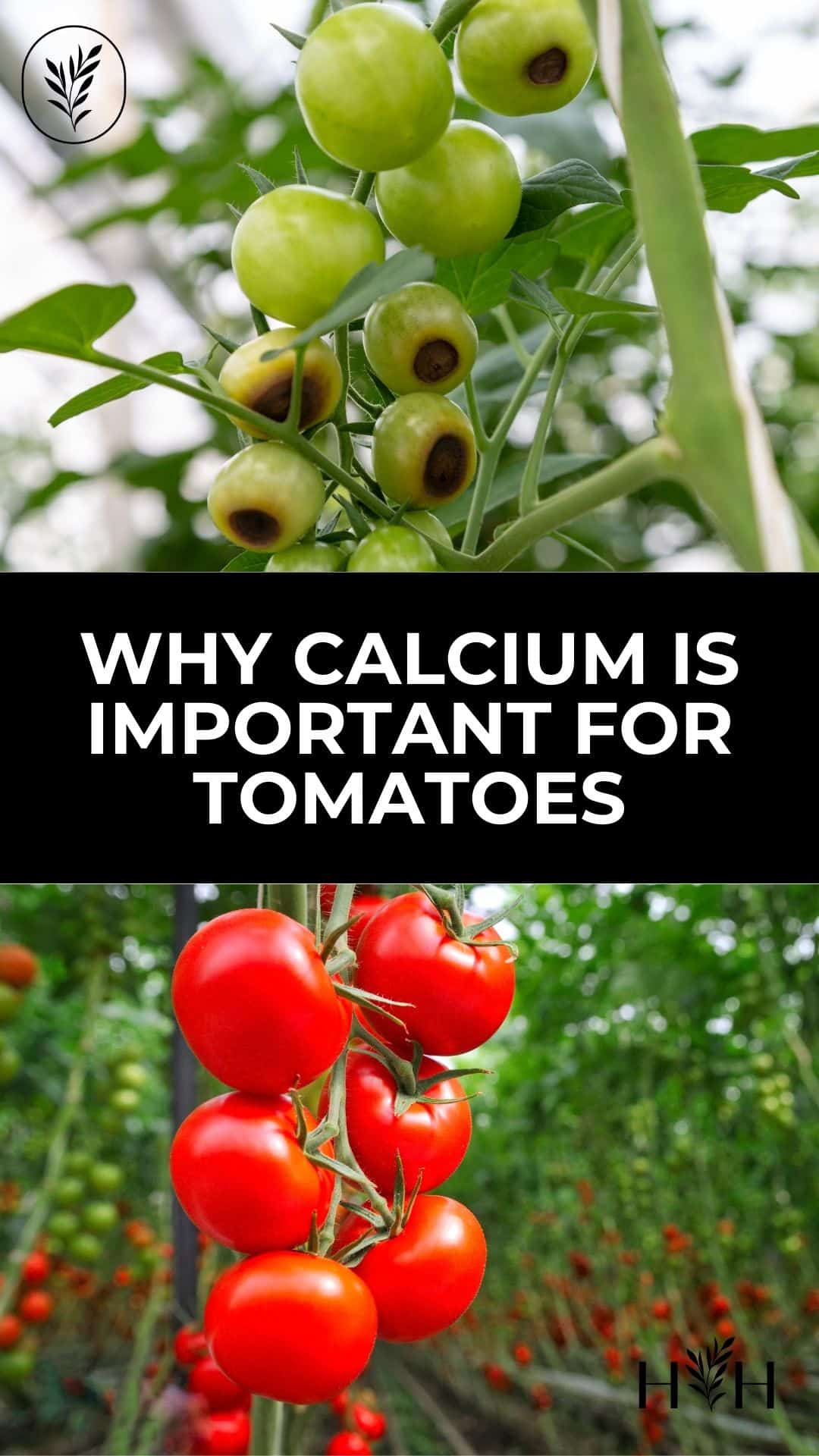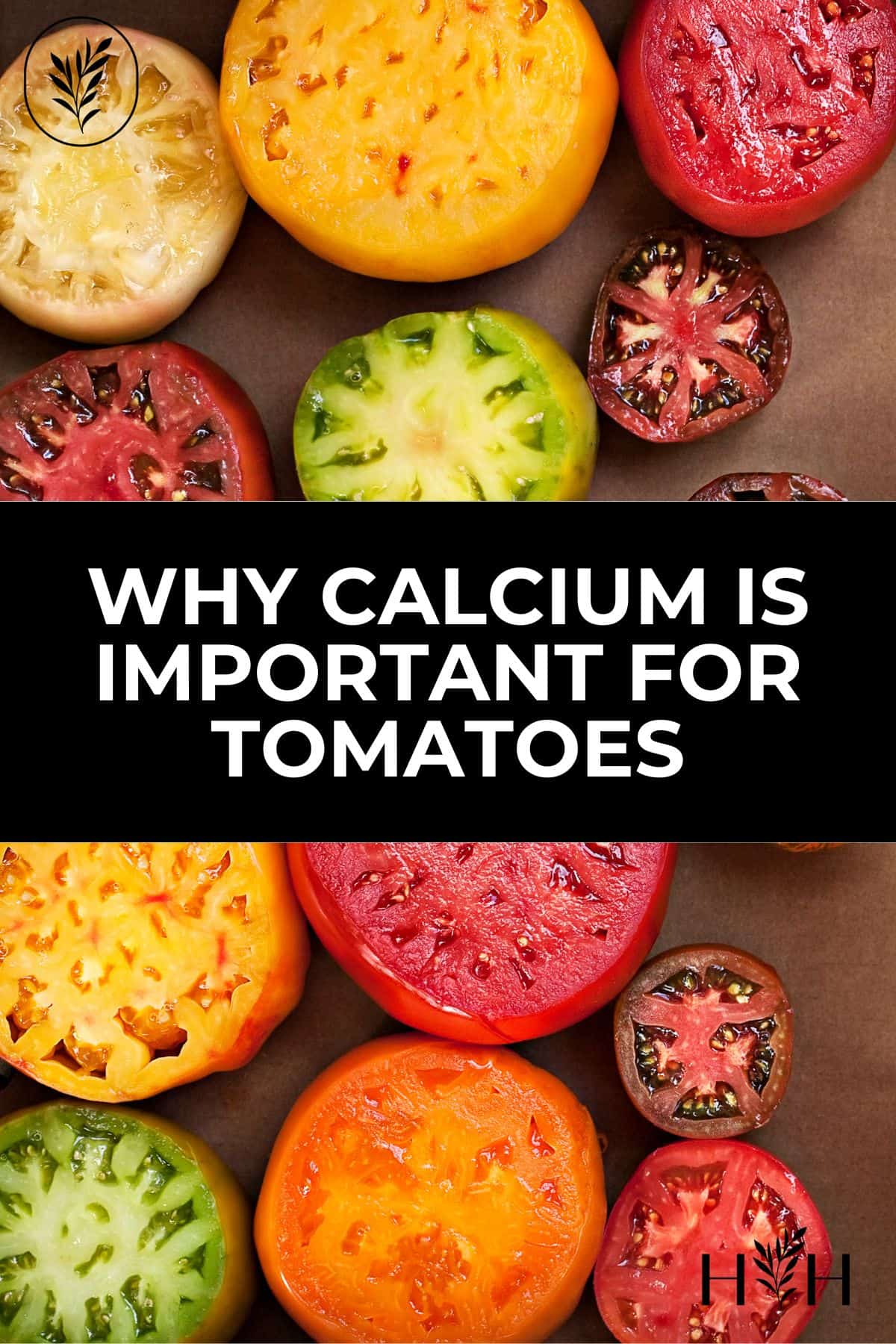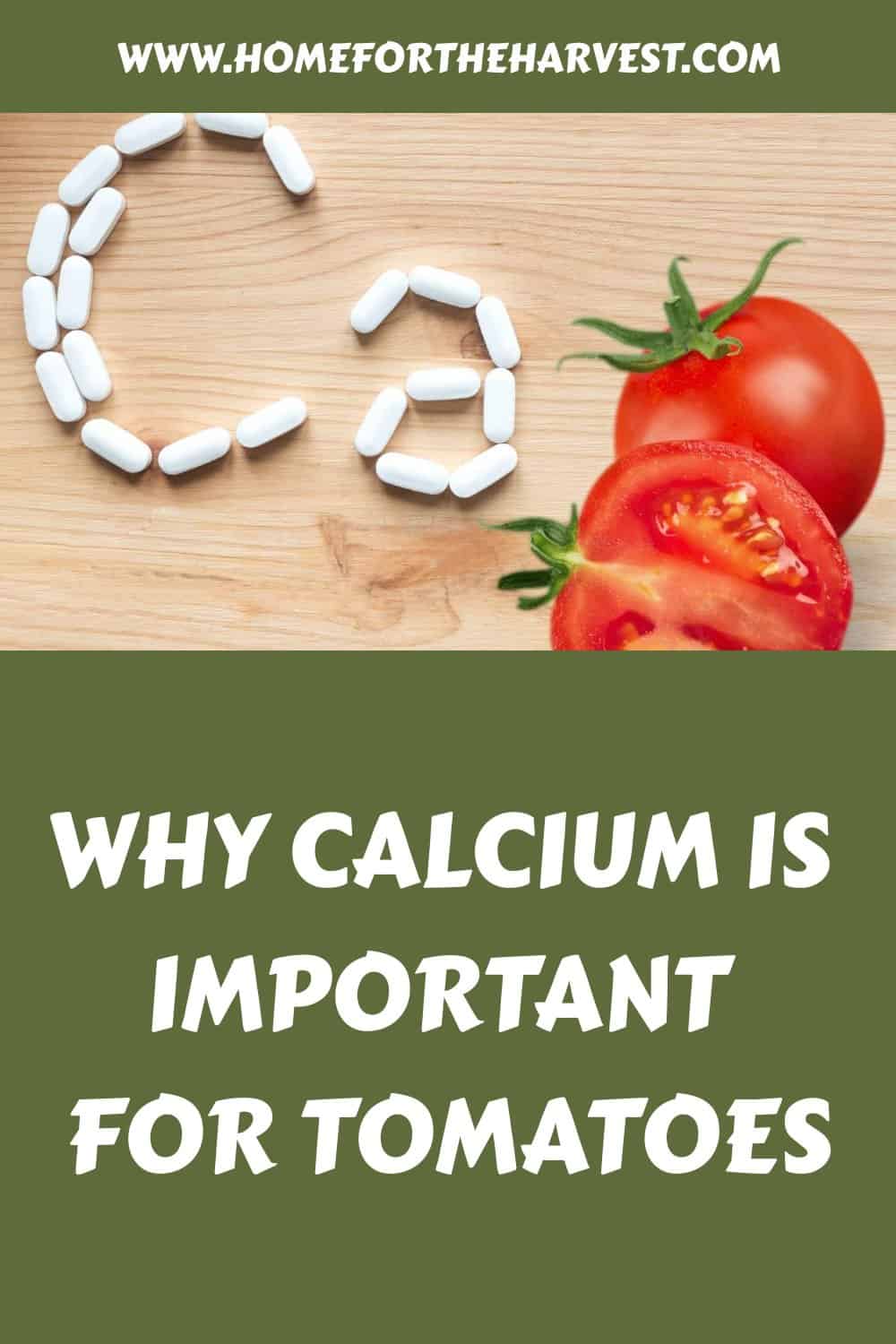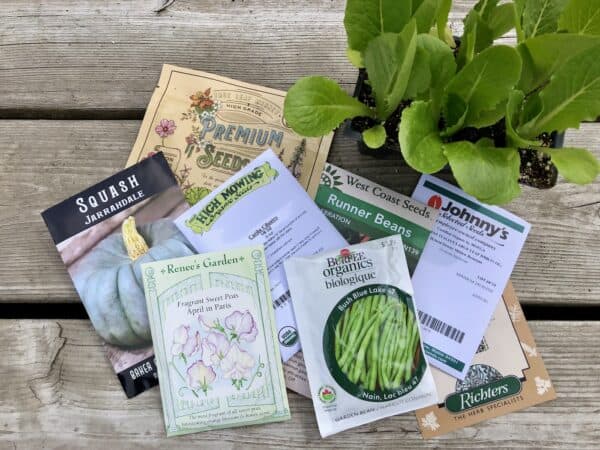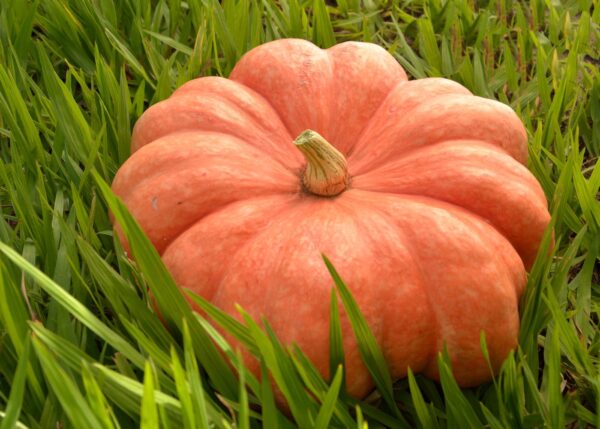Wondering why calcium is important for tomatoes? This nutrient is key for this plant!
Calcium is a secondary nutrient. It is needed in smaller amounts than the macronutrients (nitrogen, phosphorus and potassium), but that doesn’t mean it is any less important. Especially when it comes to growing tomatoes, calcium is vital in cellular health and can help prevent common tomato problems.
In the early stages of plant growth, calcium helps build strong cell walls and assists in the development of plant tissues, contributing to better root and stem growth. It is also involved in the absorption of moisture and nutrients from the soil, ensuring these essential elements are transported to parts of the plant that need them.
For tomato plants especially, calcium can improve yield and plays a role in fruit development and ripening. Lack of this nutrient in the soil can lead to blossom end rot, a common tomato condition that causes the ends of the fruits to turn brown or black, become sunken, and eventually die off.
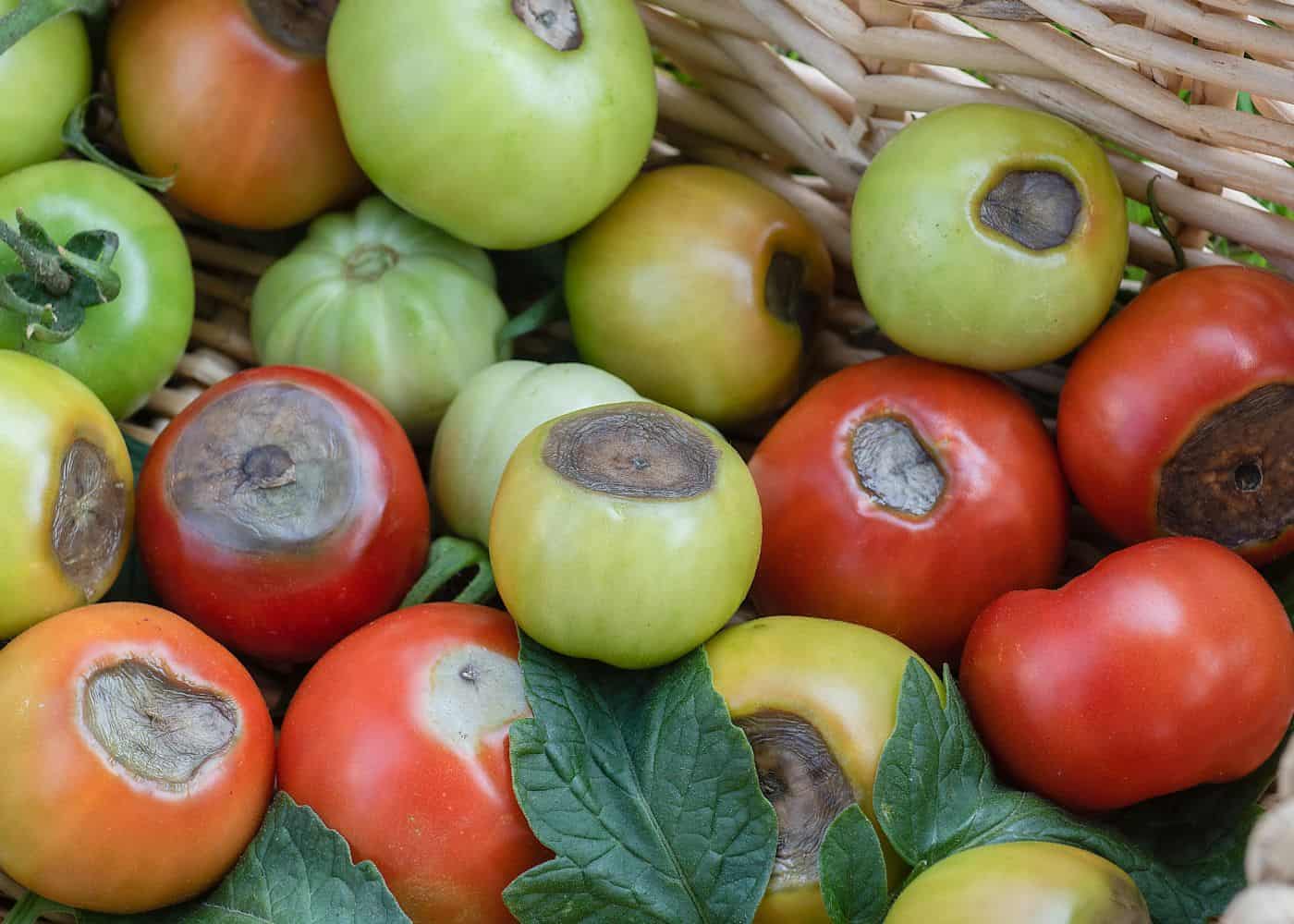
Calcium and blossom end rot
Because it is well known that lack of calcium can lead to blossom end rot, gardeners often look to this issue first when any of their fruits display signs of struggle. However, it is important to be aware of some of the misconceptions surrounding blossom end rot and its causes.
If your tomatoes are planted in good soil and are regularly fertilized, it is unlikely that the soil is calcium-deficient. However, your tomatoes may be struggling to absorb the right amounts of calcium from the soil if there are problems with the roots.
That’s why overwatering is one of the leading causes of blossom end rot in tomato plants. Even if your soil has plenty of calcium ready to be absorbed, damaged or rotting roots won’t be able to draw this calcium up through the rest of the plant and to the fruits, resulting in blossom end rot.
Although calcium deficiency is not unheard of, it’s best to identify the true causes of your plant’s calcium absorption problems before you attempt to resolve the issue.
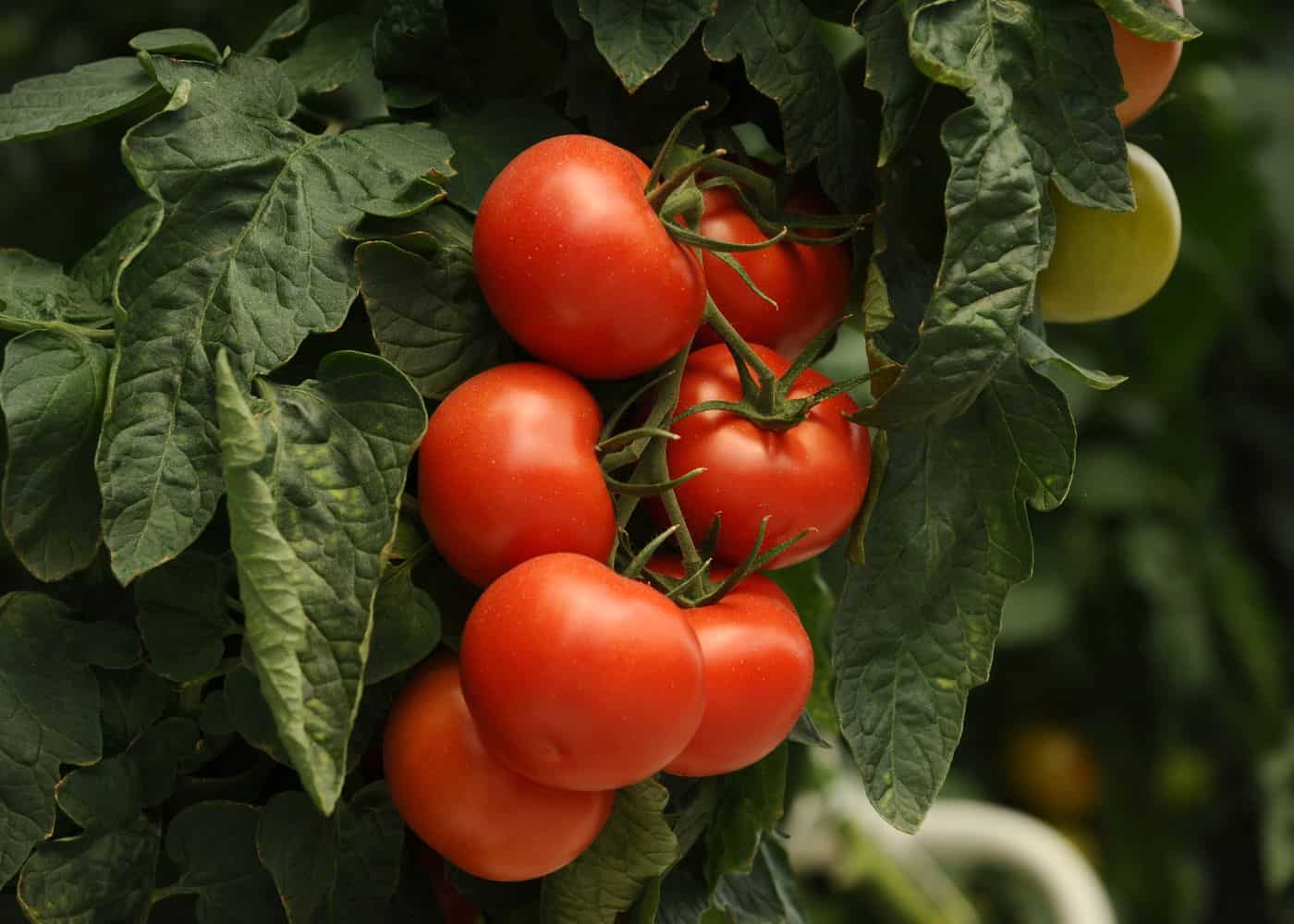
Should I add more calcium to the soil around my tomatoes?
If your tomato plant displays signs of calcium deficiency, you may want to consider amending the soil. Apart from blossom end rot, these signs include stunted growth and brown leaf tips, as well as wilting or curling.
But, adjusting nutrients in the soil around your tomatoes is a tricky task.
If there are issues with growth, it’s important to resolve them as quickly as possible. However, adding the wrong nutrients when there is already an imbalance in the soil can only lead to further problems. Only looking at nutrient issues also ignores other potential factors in the environment and care that may be causing the problem.
To avoid making any damaging mistakes, experts recommend starting with a soil test, specifically one for Cation Exchange Capacity (CEC). This will tell you how much nutrients the soil around your tomatoes can hold. If the number is high, you shouldn’t have any issues. If the number is low, your tomatoes are probably nutrient deficient.
You can typically purchase a soil test online to complete at home to give you a better picture of what’s needed for your plants. Alternatively, talk to experts at your local nursery for guidance.

How to add calcium to soil
If you find your tomatoes do need more calcium, there are a couple of ways to amend the soil to improve conditions.
Fertilizer
The easiest option is likely a prepackaged fertilizer. Use a liquid formula for the fastest results. Slow-release natural fertilizers are also a good long-term option.
Eggshells
Eggshells are the most common recommendation for adding calcium to soil. However, the shells can only release calcium once they start breaking down, which takes a very long time.
Crushing the eggshells before adding them to the soil can help, but this is still a slow process that is best used for long-term soil improvement rather than a quick fix. Eggshells typically work best when added to compost to break down with other organic matter, rather than used on their own.
Lime
Made of calcium carbonate, lime is commonly used in gardens to raise the pH of soil. It also contains plenty of calcium (evident in the name) that can be beneficial for your tomatoes.
However, tomatoes do prefer slightly acidic soil. You’ll need to use lime very carefully to get the right balance of adding calcium without changing the pH too much.
Bone meal
Bone meal is another common garden product made of ground-up bones. This is another addition that works overtime rather than immediately, slowly adding calcium and other nutrients to your soil.
Be careful when using this around pets though, as dogs may dig up your tomato plants to get to the bone meal in the soil.
Wood ash
Hardwood ash contains calcium too and plenty of other nutrients that can improve the growth of your tomatoes. Like lime, it can also alter the pH of your soil and should be used sparingly.
Also, make sure the ash you are using does not come from treated wood as this can inhibit growth in your tomatoes.
Foliar spray
There are also various foliar sprays containing calcium for quicker absorption through the leaves. This is the best short-term solution but may need to be applied a few times to combat the problem.
Foliar sprays also don’t address soil issues, so it’s best to combine this method with a more long-term solution to improve your harvest.
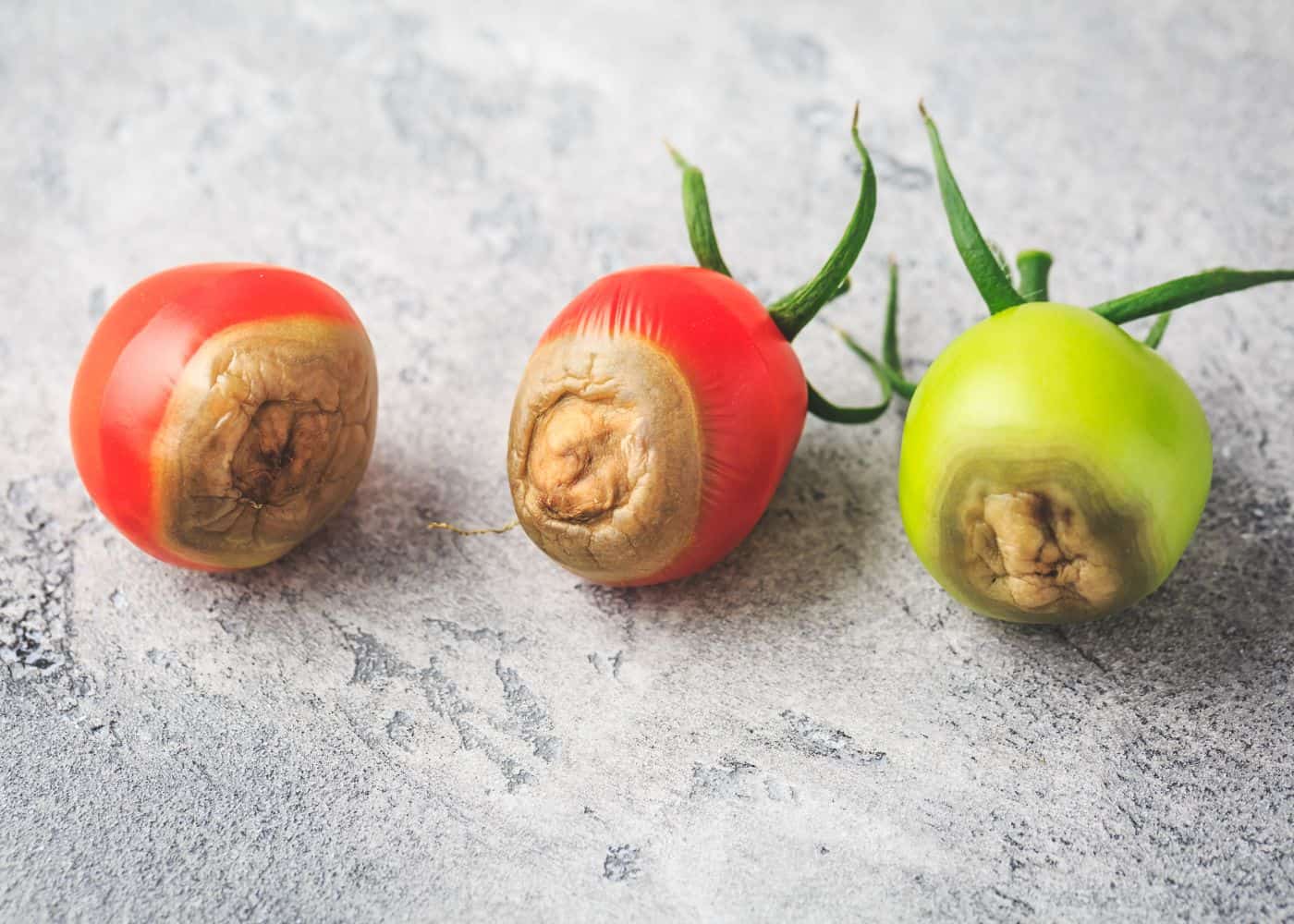
FAQs about why calcium is important for tomatoes
Why do tomatoes need calcium?
Calcium is vital in cellular health and can help prevent common tomato problems. Calcium helps build strong cell walls and assists in the development of plant tissues, contributing to better root and stem growth. It is also involved in the absorption of moisture and nutrients from the soil, ensuring these essential elements are transported to parts of the plant that need them.
Do tomatoes need lots of calcium?
Experts recommend starting with a soil test, specifically one for Cation Exchange Capacity (CEC). This will tell you how much nutrients the soil around your tomatoes can hold. If the number is high, you shouldn’t have any issues. If the number is low, your tomatoes are probably nutrient deficient.
Can plants grow without calcium?
Lack of calcium can lead to blossom end rot. However, it is important to be aware of some of the misconceptions surrounding blossom end rot and its causes.
Resources
- How to grow tomatoes?
- A guide to grafted tomato plants
- How to grow heirloom tomatoes?
- Carbon tomato growing guide & harvest tips
- Reasons Why Tomato Plant Leaves Turn Yellow
- How to save tomato seeds?
References
- Gould, W. (2013). Tomato Production, Processing and Technology. Elsevier.
- Moss, W. (2012). Any Size, Anywhere Edible Gardening: The No Yard, No Time, No Problem Way To Grow Your Own Food. Cool Springs Press.
- Johns, J. (2019). Growing Tomatoes. Book Publishing Company.
Need more info?
Are you interested in learning more about why calcium is important for tomatoes? Here are our best articles about it!


